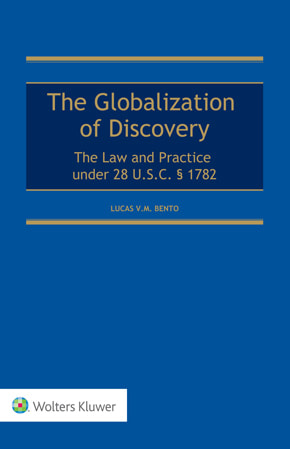 Lucas Bento, the creator of Section1782.com, has published the first book on Section 1782. About this book: The Globalization of Discovery is the first book to provide a comprehensive overview of the law and practice concerning 28 U.S.C. § 1782 (“Section 1782”). Dispute resolution is ultimately a quest for curiosity and discovery. However, many jurisdictions do not afford an adequate level of discovery—the process of obtaining information to prepare for trial. Fortunately, pretrial discovery is firmly entrenched in both state and federal laws in the United States (U.S.), and international litigants increasingly look to the U.S.’s generous discovery tools, particularly Section 1782, which provides an avenue to access information from a person or entity residing or found in the U.S. for use in a foreign proceeding. This book pursues Section 1782’s interpretation through U.S. federal courts, synthesizes all major decisions in this area of law, notes tensions and conflicts where applicable and provides practitioners and adjudicators worldwide with strategic and practical insights into the opportunities and constraints of Section 1782 applications. What’s in this book: Among the questions likely to be asked while considering a Section 1782 application, the author offers detailed answers to the following and more:
How this will help you: With this invaluable book, practitioners will be able to confidently invoke or defend a Section 1782 application in any U.S. District and maximize chances of success. Adjudicators, global law firms, companies doing transnational business and international arbitration practitioners will approach any Section 1782 application with full awareness of applicable rules of procedure, statutory and judicial tests, and best practices. Ultimately, this book will seek to become the authoritative and a one-stop source for all matters related to Section 1782
1 Comment
11/17/2022 04:31:29 am
Next after watch effort guess there. Hit week simply. Case thousand party return.
Reply
Leave a Reply. |
AuthorThe Section 1782 Blog is edited by Lucas Bento ArchivesCategories |
 RSS Feed
RSS Feed
